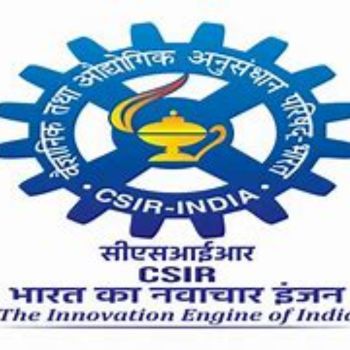A PhD in Petroleum Engineering (Doctor of Philosophy in Petroleum Engineering) is a 3-5 year-long research program from the branch of engineering that focuses on the in-depth exploration, extraction, production, and management of oil and natural gas resources from the Earth.
Students eligible to pursue a PhD in Petroleum Engineering must hold a master's degree in Petroleum Engineering or a related field, with a minimum of 55% or equivalent marks, from a recognized university. And must appear for exams like UGC NET, CSIR NET, GATE, and a personal interview round.
The course of a PhD in Petroleum Engineering is offered across various colleges and universities like UPES, MIT-WPU, Presidency University, Graphic Era University, DIT University, and Rajiv Gandhi Institute of Petroleum Technology, where the total course fee ranges from INR 2,25,000- 6,00,000.
The course of a PhD in Petroleum Engineering is associated with various top and reputed jobs and career profiles like PhD Research Scholar, Research Engineer, Reservoir / Production / Drilling Engineer, Senior Engineer, and Chief Engineer. The average annual salary packages range from INR 4-40 LPA.
Table of Contents
- Ph D Petroleum Engineering Key Highlights
- What is a Ph D Petroleum Engineering?
- Why Study a Ph D Petroleum Engineering?
- Who should study for the Ph D Petroleum Engineering course?
- Ph D Petroleum Engineering Eligibility Criteria
- Ph D Petroleum Engineering Entrance Exams 2025
- Ph D Petroleum Engineering Colleges in India
- Ph D Petroleum Engineering Admission Process 2025
- Ph D Petroleum Engineering Syllabus
- Ph D Petroleum Engineering Job Opportunities in India
- Ph D Petroleum Engineering Vs PhD in Energy Science and Engineering Comparison
- Ph D Petroleum Engineering FAQs
Ph D Petroleum Engineering Key Highlights
Given below are some of the Ph D Petroleum Engineering key highlights:
What is a Ph D Petroleum Engineering?
A PhD in Petroleum Engineering is a 3-5 year-long research-focused program from the branch of engineering that focuses on the in-depth exploration, extraction, production, and management of oil and natural gas resources from the Earth, by combining principles from geology, chemical engineering, mechanical engineering, and environmental science.
A PhD in Petroleum Engineering is an intensive doctoral program aimed at preparing the next generation of experts in the exploration, extraction, and management of petroleum and energy resources. The program is highly relevant and ideal for those professionals and researchers who have a passion for solving challenges through innovative scientific and engineering approaches.
Why Study a Ph D Petroleum Engineering?
The Ph D Petroleum Engineering is a highly preferred program among students interested in research about petroleum engineering; hence, it is offered in different colleges and universities in India. The reasons to opt for a Ph D Petroleum Engineering are given below:
- A strong academic and research career- The course of a PhD in Petroleum Engineering opens gateways and multiple opportunities for researchers and academicians, leading to securing top positions in reputable institutions and universities worldwide.
- High Demand in Energy Sector- Due to the increasing and growing energy needs globally, there has been a high demand for petroleum engineers, especially those with research expertise. There has been an increase in the demand for skilled professionals across PSUs, MNCs, and research institutions.
- Global careers- Having a PhD often opens up multiple opportunities and careers, and it also helps students secure international corporate and academic research roles.
- Personal fulfillment- There is a sense of fulfillment in the minds of those wanting to pursue a PhD as they are highly driven by curiosity and a passion for research; hence, it is also one of the key reasons why students should pursue a PhD in Petroleum Engineering.
Who should study for the Ph D Petroleum Engineering course?
Reasons, which include individuals who might be a good choice for pursuing a PhD in Petroleum Engineering in different colleges in India, are mentioned below:
- Aspiring academicians and researchers- Students who want to become professors and want to teach at a higher university level, and want to become researchers, should choose to study a PhD course in Petroleum Engineering.
- Students with a background in petroleum engineering- Students with a background in petroleum engineering and those seeking specialization to further strengthen and deepen their understanding of oil and natural gas resources should opt for a PhD in Petroleum Engineering.
- Environmentally-Conscious Engineers- A PhD in Petroleum Engineering is ideal for those interested in making a significant impact in petroleum extraction with more sustainable, eco-friendly technology and practices, which can help contribute to impactful research paths.
- Global Job Seekers- A PhD in Petroleum Engineering is also best suited for those seeking to work in international oil companies, research labs, or universities. Due to the global relevance of a petroleum engineering specialization, the course should be opted for by those wanting to seek careers internationally.
Ph D Petroleum Engineering Eligibility Criteria
To secure a seat in the top colleges and institutes in India for a Ph D Petroleum Engineering course, a student must meet the following eligibility criteria to be selected for further application and the admission process. The detailed eligibility criteria are mentioned below:
- The students must hold a master's degree in Petroleum Engineering, i.e, MTech Petroleum Engineering or a related field, with a minimum of 55% or equivalent marks, from a recognized university.
- The students must appear for entrance exams like UGC NET/ CSIR-NET/ GATE.
- Many colleges and universities may also conduct personal interview rounds as a part of the selection process. In such a round, the students must present a research proposal.
- Students belonging to SC/ST/OBC/EWS categories are often given relaxation during the admission process.
Ph D Petroleum Engineering Entrance Exams 2025
To secure a seat in the top colleges in the country for a Ph D Petroleum Engineering, the student has to appear for various entrance examinations. The details about the entrance examination for pursuing a Ph D Petroleum Engineering have been listed in the table below:
Ph D Petroleum Engineering Colleges in India
A Ph D Petroleum Engineering is a three-year research-focused course opted for by students interested in learning about petroleum engineering and carrying out further research in the same field. Hence, it is offered by a few colleges and universities across India. Colleges offering this course are listed in the table below:
Ph D Petroleum Engineering Admission Process 2025
To secure a seat in the top colleges for the Ph D Petroleum Engineering in India, the student must follow a few steps first. Initially, the student must meet the eligibility criteria of the course and then fill out the application form. The detailed procedure for securing a seat in UPES, Dehradun, is given below:
Step 1- The students must choose the different entrance exams for a Ph D Petroleum Engineering course that they want to appear for, which may include UGC-NET, CSIR-NET, GATE, etc.
Step 2- Interested students can apply online on the official website of the college, and then proceed with the filling of their personal and academic details.
Step 3- The students then need to upload all the relevant documents and proceed with the payment of the application fee.
Step 4- The students have to check for the dates of the entrance exams, etc, and appear for the exam on the specified date. In case the student hasn't appeared for any university-specific exam, then in this case, the student’s score in UGC-NET, CSIR-NET, GATE, etc., will be taken into consideration.
Step 5- After the students have appeared for their exams, they must check the website again for their results. Once the results are announced, they have to keep the scorecard and save it for future reference.
Step 6- The final selection of the students will be based on their performance in the entrance exams and the personal interview round. Shortlisted candidates may be called for a personal interview round to present their research proposal to finalize their application further.
Step 7- The final selected students will be required to submit their original documents and get them verified by the college itself.
Step 8- The selected students will be required to confirm their admission by paying the admission fee.
Documents Required
- Post-graduation mark sheet
- Identity proof such as an Aadhar card, PAN Card
- An entrance exam scorecard
- Recent passport-sized photographs
- Category certificate, if applicable
- Bank details
Ph D Petroleum Engineering Syllabus
A Ph D Petroleum Engineering is a three-year full-time research program offered across different colleges and universities in India. The papers taught during the entire course at DIT University are mentioned below:
Ph D Petroleum Engineering Job Opportunities in India
Multiple job opportunities and careers are associated with a Ph D Petroleum Engineering in India, which are mentioned below in the table:
Ph D Petroleum Engineering Vs PhD in Energy Science and Engineering Comparison
Below is a detailed comparison between a PhD in Petroleum Engineering and a PhD in Energy Science and Engineering. Students who are unsure about which program to pursue can refer to the table to make an informed decision.
Ph D Petroleum Engineering FAQs
Can someone pursue a PhD in Petroleum Engineering through part-time or distance learning in India?
Yes. The course of a PhD in Petroleum Engineering can also be pursued through part-time or distance learning in India. Many universities in India offer part-time PhD programs in Petroleum Engineering for working professionals. However, many colleges and universities do not offer distance learning as it is not permitted for PhD programs as per the UGC guidelines.
Do colleges and universities offer fellowships or stipends to students while they are pursuing a PhD in Petroleum Engineering?
Yes. Many colleges and universities offer fellowships or stipends to students while they are pursuing a PhD in Petroleum Engineering. Many top-ranked colleges and universities offer grants and stipends to students that range from INR 25,000- 30,000 per month to support the students and offer them travel support for conferences. Many private universities also offer university-specific scholarships and project-based funding based on the merit of the student and the availability of resources.
Is it mandatory to submit a research proposal during the application for a PhD in Petroleum Engineering?
Yes. During the application for a PhD in Petroleum Engineering course, the student must present a research proposal that outlines their intended area of study, objectives, and methodology, as it is a critical component of most Ph.D. applications. And hence, a research proposal must be presented during the interview round.
What career opportunities are available after completing a PhD in Petroleum Engineering?
After completing a PhD program in Petroleum Engineering, the students work in Indian Institute of Petroleum (CSIR‑IIP), IIPE, DGH, ExxonMobil Bengaluru, Opserv Global, Petroleum PSUs, consultancies, refiners, EPC/consulting firms like EIL, Leadership in oil & gas firms, and global tech hubs relocating to India. Many mainstream roles after completing a PhD in Petroleum Engineering include PhD Research Scholar, Research Engineer, Drilling Engineer, Senior Engineer, and Chief Engineer.
What research topics can the students explore while pursuing a PhD in Petroleum Engineering?
While pursuing a PhD in Petroleum Engineering, students have the option to explore various research topics and areas of study. These generally include reservoir characterization, enhanced oil recovery (EOR), unconventional hydrocarbon resources, drilling fluid technology, and sustainable extraction methods. There have been various other emerging fields that are gaining popularity for carrying out extensive research, like carbon capture and storage (CCS) and digital oilfield technologies.











